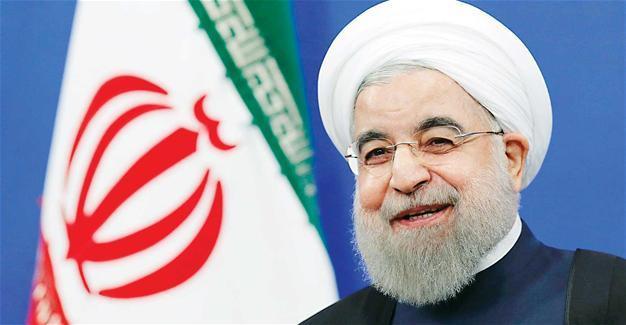Iran ‘hostile’ to US involvement in Syria talks
TEHRAN

Iranian officials said Jan. 18 that they were strongly opposed to the United States joining Syrian peace talks in Kazakhstan next week, local media reported.
“We are hostile to their presence and we have not invited them,” Iranian Foreign Minister Mohammad Javad Zarif said late Jan. 17, according to the Tasnim news agency, AFP reported.
That goes against the position of the other two organizers of the talks - Russia and Turkey - which have said the new U.S. administration of Donald Trump should be represented in Astana on Jan. 23.
Ali Shamkhani, secretary of Iran’s Supreme National Security Council which oversees international coordination on the Syrian war, confirmed on Jan. 18 that Iran had refused to invite the U.S.
“There is no reason for the United States to participate in the organizing of political initiatives in the Syrian crisis and it is out of the question that they should have a role in the Astana negotiations,” he said, according to the official IRNA news agency.
Next week’s talks, which aim to bring together representatives of the Syrian government and rebel groups, mark the first time since the conflict began in 2011 that the U.S. has not been at the center of peace negotiations.
Foreign Ministry spokesman Bahram Ghasemi told AFP that any expansion of participants “could increase the risk of failure.”
“Our policy is to not add other countries at this stage,” he said.
“The [Syrian] armed groups have accepted the invitation of these three countries [Iran, Russia and ] and are going to Astana,” said Iranian President Hassan Rouhani, speaking separately on Jan. 17 at a news conference broadcast live on state television, according to Reuters.
Asked why the United States and Saudi Arabia had no direct role in the talks, Rouhani said: “Some countries are not attending the talks, and their role was destructive. They were helping the terrorists.”
During a speech at the World Economic Forum in Davos, Zarif said Jan. 18 that Iran and Saudi Arabia should be able to work together to help end conflicts in Syria and Yemen, after successfully cooperating over Lebanon last year.
“I do not see any reason why Iran and Saudi Arabia should have hostile policies towards each other. We can in fact work together to put an end to miserable conditions of the people in Syria and Yemen and Bahrain and elsewhere in the region,” Zarif said.
“Iran and Saudi Arabia were able to actually stop impeding the process of the presidential election in Lebanon. We have a success story,” Zarif said in Davos.
At Davos, the new U.N. chief Antonia Guterres said that the global threats caused by Syria’s civil war have become “too dangerous” to go unresolved, underlining the need for progress at peace talks next week.
Meanwhile, on the ground, fierce clashes gripped the eastern Syrian city of Deir ez-Zor on Jan. 18, the Syrian Observatory for Human Rights monitor said, as ISIL set tires ablaze to create a smokescreen from regime warplanes.
An activist group publishing news on the besieged city told AFP that ISIL had executed 10 Syrian regime fighters captured during the jihadist onslaught.
ISIL launched the brutal assault on Jan. 14 to capture the government-held third of Deir ez-Zor city, as well as the adjacent military airport.
More than 150 people are reported to have been killed in the fighting.
 Iranian officials said Jan. 18 that they were strongly opposed to the United States joining Syrian peace talks in Kazakhstan next week, local media reported.
Iranian officials said Jan. 18 that they were strongly opposed to the United States joining Syrian peace talks in Kazakhstan next week, local media reported.